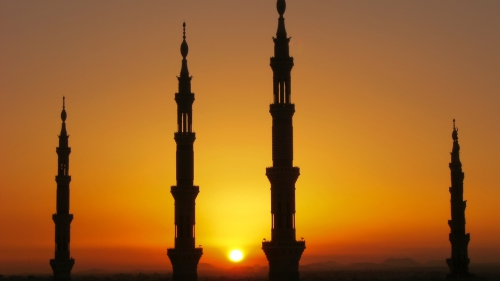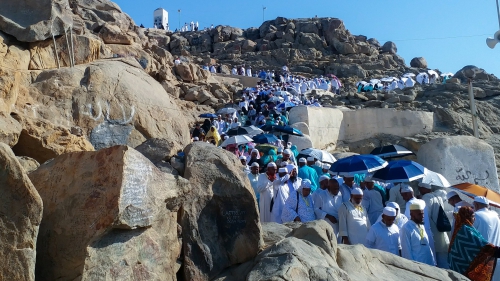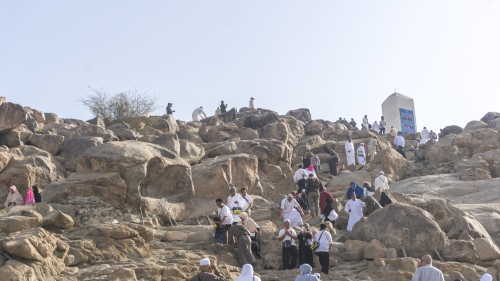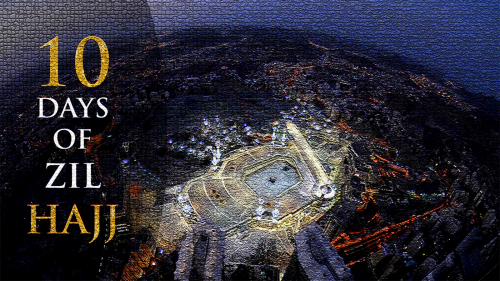A Rabbi's view of the Last Prophet
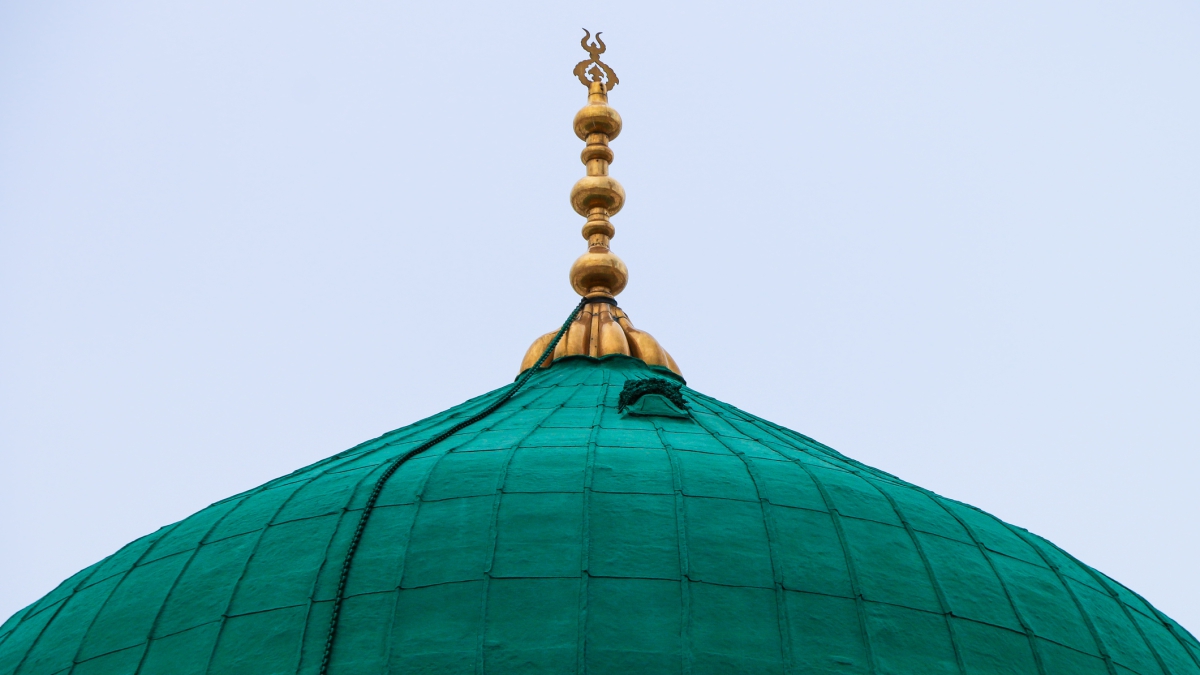
Why Are There No Prophets After Prophet Muhammed?
Because the Qur’an says: “Muhammad is not the father of any of your men, but he is the Apostle of Allah and the Last of the prophets, and Allah is cognizant of all things.” (33:40) But why does the second half of this verse follow after the first half.
Because just as Prophet Muhammad will have no son to inherit his authority to rule the Muslim community, so too should the highest religious authority in each future religion not be an inherited position.
The great exception to this rule was Abraham the Hebrew, “whom God chose to be His friend,” and who, as far as we know, is also the only prophet to have two sons who were also prophets.
And these two sons of Prophet Abraham, Prophet Ishmael and Prophet Isaac are the only two Prophets who each had a descendant many centuries later who proclaimed another sacred scripture that has become the basis for one of the two largest religions in the whole world, with current trends showing that Christianity will lose its position as the world’s most populous religion to Islam by the end of the 21st century.
Thus, the uniqueness of Prophet Abraham, the Hebrew (Genesis 14:13) who came after Messengers Seth and Noah and all their colleagues, had failed to establish an ongoing monotheistic religion. Messenger Abraham was the first of those we know of to successfully establish, through his own descendants' Prophets Moses, David, Jesus, and Muhammad, the major monotheistic religions that are still practiced today.
Prophet Abraham is famous for the numerous ways God tested him, especially the two terrible tests: banishing Hagar and his first born son Ishmael (Qur’an 2:124, & Genesis 16:1-16) and calling on Abraham to make his son an offering to God. (Qur’an 37:100-113 & Genesis 22:1-24)
Most Muslim commentators say the son, unnamed in the Qur’an, was Ishmael (Arabic Isma’il). Some Muslims assert it was Isaac. Perhaps both participated in the test at different times so that each son could produce descendants who, in time, would become a blessing for other non-Hebrew nations of the earth. (Genesis 22:16-18 & Qur’an 4:163)
Islam teaches that Prophets were raised and sent to the whole of mankind in different lands and at different times. What is essential is that no land, people, or period was neglected by God. Prophets were sent to every human language group since the age of Adam. The Qur’an says: “There never was a people without a Warner (Prophet) having lived among them (35:24) and “We would never visit our wrath (chastise any community) until We had sent a Messenger to give warning” (17:15)
Since there are over 7,000 languages now spoken, and another 10-20,000 that were spoken over the previous 10,000 years and then died out, all human societies have been taught the way God wants each of them to conduct their Divine worship (Qur’an 21:25), and the moral behavioral rules they should observe (Qur’an 16:90-92).
Throughout human history, thousands of prophets have been sent to guide human beings. Adam was the first of the prophets, and Prophet Muhammad was the last of them. The exact number of prophets is not known, but in many Hadith traditions, their number mentioned is 124,000.
Of these prophets, 313 brought sacred scriptures and are called Messengers. Most prophets did not bring any books. Sometimes there were more than one prophet in a single town or city who fulfilled the duties of prophethood.
It is narrated from Abu Dharr that one day he asked the Messenger of Allah: How many prophets are there in all? He replied: One hundred and twenty-four thousand. He asked: How many of them were messenger prophets? He replied: Three hundred thirteen from the above group. He asked: Who was the first of them? He replied: Adam.
Then Prophet said: O Abu Dharr: There were four Syriac prophets: Adam, Sheeth (Seth), and Ukhnuh, (called Idris), and who was the first to write and Nuh. Four were Arabs: Hud, Salih, Shuaib (Job), and your prophet, Muhammad. The first prophet among Bani Israel was Musa, and the last of them was Isa, and they were in all six hundred prophets. (The Rabbis taught that 48 named male prophets and seven named female prophets prophesied in Israel. Who were the seven female prophets? Sarah, Miriam, Deborah, Hannah, Abigail, Hulda, and Esther.)
Abu Dharr asked: O Messenger of Allah, how many sacred scriptures descended? He replied: 104, of which Allah revealed to Sheeth (Seth) 50 scrolls, 30 on Idris and 20 on Ibrahim. He also revealed (the four still in use) Taurat, Injeel, Zabur, and Quran. (Biharul Anwar, Vol. 11, Pg. 32.)
Five messenger prophets brought sets of laws (Halakah and Shariah), and they are prophets: Nuh, Ibrahim, Musa, Isa, and Muhammad. Ismail Jofi narrated from Imam Muhammad Baqir: The messengers are five in number: Nuh, Ibrahim, Musa, Isa, and Muhammad. (Biharul Anwar, Vol. 11, Pg. 32)
We do not have much information about the names or numbers of all the prophets; in books of history, only some of their names are mentioned. In the Quran, 26 of them are mentioned by names: They are Adam, Nuh, Idris, Hud, Salih, Ibrahim, Lut, Ismail, Al-Yasa, Zulkifl, Ilyas, Ayyub, Yunus, Ishaq, Yaqub, Yusuf, Shuaib, Musa, Harun, Dawood, Sulaiman, Zakariya, Yahya, Ismail, the keeper of his word, Isa and Muhammad. (Biharul Anwar, Vol. 11, Pg. 32.)
None of the Messengers sent prior to Prophet Abraham were able to establish an ongoing monotheistic community that lasted to the present. “And when there came to them a Messenger from Allah, confirming what was with them, a party of the people who were given the Book threw away the Book of Allah behind their backs, as if they did not know it!” (Qur’an 2:101)
And “Those who disbelieve are steeped in arrogance and defiance. How many generations have We destroyed before them? They cried out when it was too late to escape. And they marveled that a warner had come to them from among them. The disbelievers said, “This is a lying magician.” “Did he turn all the gods into one God? This is something strange.” The notables among them announced: “Go on and hold fast to your gods. This is something planned. We never heard of this in the former faith. This is nothing but a fabrication. (Qur’an 38:2-7)
And finally: “The people of Noah denied before them, and the companions of the well and Thamūd; and ʿAad and Pharaoh and the brothers [neighbors] of Lot; and the companions of the forest, and the people of Tubbaʿ. All denied the messengers [Allah sent to them] so My threat was justly fulfilled.” (Qur’an 50:12-14)
Among Islamic scholars, there are some who count a few women as prophets: Abu al-Hassan al-Ash’ari, Imam al-Qurtubi, and ibn Hazm. These scholars agree in counting Mariam, the mother of Jesus, as a female prophet, and Hawa’/Eve based on the idea -which is already in the Jewish scripture- that Hawa’/Eve was created from a side of Adam so that the side can’t be higher or lower than the whole person, Sarah the first wife of Prophet Abraham, the mother of Musa/Moses, Hajar and Aassiya the wife of pharaoh among them!
Why did they choose these women? The mother of Musa because of the revelation or inspiration she was given in (Qur’an 28:7) Mariam because of her dialog with the angle (Jibreel) in (Quran 19:17-19) and with other angles in (3:42-43). They considered anybody who received an order or a prohibition via an angel as a prophet!
This was most likely the same logic used by the rabbis in selecting the seven named female prophets. Sarah, Miriam, Deborah, Hannah, Abigail, Hulda,
and Esther. The rabbis had the direct guidance of the written Torah (Exodus 15:19-21) “When Pharaoh’s horses, chariots and horsemen went into the sea, the Lord brought the waters of the sea back over them, but the Israelites walked through the sea on dry ground. Then Miriam the prophet, Aaron’s sister, took a timbrel in her hand, and all the women followed her, with timbrels and dancing. Miriam sang to them: “Sing to the Lord, for He is highly exalted. Both horse and (chariot) driver He hurled into the sea.”
Thus, the rabbis had the written example of Miriam the prophetess, sister of Prophets Aaron and Moses, as well as other “prophetesses” referred to in other places in the Hebrew Bible: Judges 4:4; 2 Kings 22:14; and Isaiah 8:3.
Perhaps the part of our opening verse, “the Apostle of Allah and the Last of the prophets; and Allah is cognizant of all things,” means that God is cognizant that most men would not listen to a female prophet until women become religious leaders and then men will be ready to listen to them.
Topics: Interfaith, Prophet Muhammad (S), Prophethood
Views: 6619
Related Suggestions







